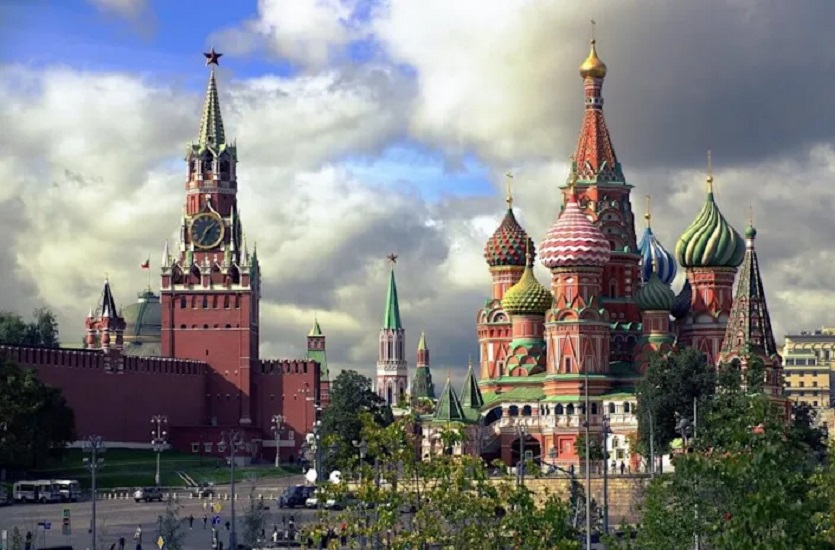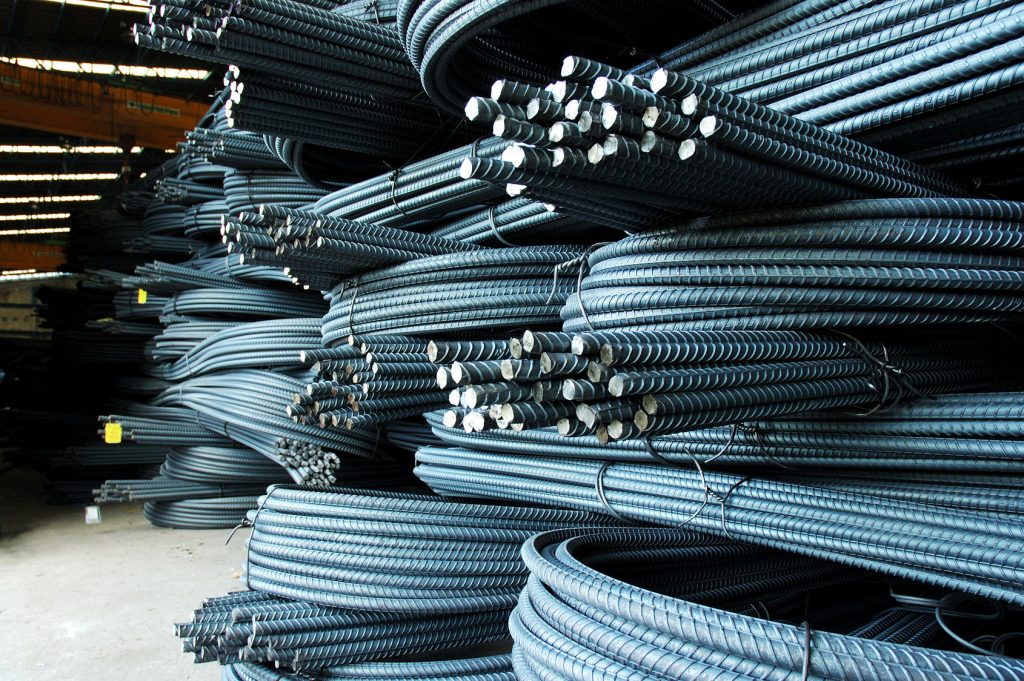Economy
Russia’s Summit on Africa: Challenges, Implications and Beyond

By Kester Kenn Klomegah
With highly expected symbolism, Russia’s primary focus at the forthcoming November summit in St. Petersburg with African leaders, corporate business directors, representatives from the academic community, civil society organizations and media will largely be renewing most of its unfulfilled bilateral agreements and making new pledges that will, as usual, be incorporated into a second joint declaration.
Brilliant speeches reminded of long-standing traditions of friendship and solidarity, how Soviets assisted African countries in their struggle to attain independence and established statehood, and further highlighted neo-colonialism tendencies wide spreading on the continent.
That Russia stands with Africa on matters of strengthening peace and stability on the continent and ensuring regional security. Next is absolute readiness to engage in broadening cooperation in all economic sectors.
While the first summit was described as highly successful due to its spectacular blistering symbolism and has offered the necessary solid impetus for raising to qualitative level the multifaceted relations, especially in the economic spheres with Africa, much has still not been pursued as expected. Behind the shadows of the bilateral agreements, some of the projects were simultaneously assigned to either Western or European investors.
Long before the historic summit, the African foreign minister and delegations had lined up visiting Moscow. Those frequent official visits were intended to show off that Russia is in high demand as indicated in a 150-paged new policy released last November by a group of 25 leading experts headed by Sergei A. Karaganov, the Honorary Chairman of the Presidium of the Council on Foreign and Defence Policy.
The report vividly highlighted some pitfalls and shortcomings in Russia’s approach towards Africa. It further pointed to Russia’s consistent failure in honouring its several agreements and pledges over the years. It decried the increased number of bilateral and high-level meetings that yield little or bring to the fore no definitive results. In addition, insufficient and disorganized Russian African lobbying combined with a lack of “information hygiene” at all levels of public speaking, says the policy report.
There are, indeed, to demonstrate “demand for Russia” in the non-Western world; the formation of ad hoc political alliances with African countries geared towards competition with the collective West. Apart from the absence of a public strategy for the continent, there is a lack of coordination among various state and para-state institutions working with Africa.
Despite the growth of external players’ influence and presence in Africa, Russia has to intensify and redefine its parameters. Russia’s foreign policy strategy regarding Africa has to spell out and incorporate the development needs of African countries.
Unlike most competitors, Russia has to promote an understandable agenda for Africa: working more on sovereignty, continental integration, infrastructure development, human development (education and medicine), security (including the fight against hunger and epidemics), normal universal human values, the idea that people should live with dignity and feel protected.
Nearly all the Russian experts who participated in putting the report together unreservedly agreed with this view. The main advantage of such an agenda is that it may be more oriented to the needs of Africans than those of its Western and European competitors. It is advisable to present such a strategy already at the second Russia-Africa summit and discuss and coordinate it with African partners before that. Along with the strategy, it is advisable to adopt an Action Plan – a practical document that would fill cooperation with substance between summits.
Vsevolod Tkachenko, the Director of the Africa Department of the Russian Foreign Ministry, stated during one of the preparatory meetings, “the African partners expect concrete deeds, maximum substantive ideas and useful proposals.” The current task is to demonstrate results and highlight achievements to the African side. Over the past years, African countries have witnessed many bilateral agreements, memoranda of understanding and pledges.
Russia has to set different narratives about its aspirations and intentions of returning to Africa. The approach has to move from rhetoric and mere declarations of interest. Since the basis of the summit remains the economic interaction between Russia and Africa, “the ideas currently being worked out on new possible instruments to encourage Russian exports to Africa, Russian investments to the continent, such as a fund to support direct investment in Africa, all these deserve special attention,” Tkachenko says.
According to an official report posted on the website, Russia’s Foreign Affairs Minister Sergei Lavrov, during the “Government Hour” in the State Duma on January 26, stated that the “cooperation with African countries has expanded to reach new frontiers. Together with African friends, we are working on preparations for the second Russia-Africa summit scheduled to be held this year.” Previously, for instance, Lavrov explicitly indicated: “Russia’s political ties, in particular, are developing dynamically. But economic cooperation is not as far advanced as political ties.”
Many experts have expressed concern about the relationship between Russia and Africa, most often comparing it with other foreign players on the continent within the framework of sustainable development there in Africa. It is about time to make meaningful efforts to implement tons of bilateral agreements already signed with African countries.
“Russia, of course, is not satisfied with this state of affairs. At present diplomacy dominates its approach: a plethora of agreements were signed with many African countries, official visits proliferate apace, but the outcomes remain hardly discernible,” Professor Gerrit Olivier from the Department of Political Sciences, the University of Pretoria in South Africa and a former South African Ambassador to the Russian Federation wrote in an emailed comment.
“While, given its global status, Russia ought to be active in Africa as Western Europe, the European Union, America and China are, it is all but absent, playing a negligible role. Be that as it may, the Kremlin has revived its interest in the African continent and it will be realistic to expect that the spadework it is putting in now will at some stage show more tangible results,” Olivier added.
Zimbabwe’s Ambassador to Russia, Brigadier General (rtd) Nicholas Mike Sango, who has been in his post since July 2015, expresses his views on the relations between Africa and the Russian Federation. While Russia has traditional ties with Africa, its economic footprints are not growing as expected. It has however attempting to transform the much boasted political relations into a more comprehensive and broad economic cooperation, he noted in his conversation with me.
He pointed to the disparity in the level of development, the diversity of cultures and aspirations of the peoples of the two regions, there is a growing realization that Africa is an important partner in the “emerging and sustainable polycentric architecture of the world order” as Foreign Minister Sergey Lavrov has aptly asserted. But in fact, Africa’s critical mass can only be ignored at great risk, therefore.
For a long time, Russia’s foreign policy on Africa has failed to pronounce itself in practical terms as evidenced by the countable forays into Africa by Russian officials. The Russian Federation has shied away from economic cooperation with Africa, making forays into the few countries that it has engaged in the last few years. African leaders hold Russia in high esteem as evidenced by a large number of African embassies in Moscow. Furthermore, Russia has no colonial legacy in Africa, according to the Zimbabwean diplomat.
Ambassador Sango, who previously held various high-level posts such as military adviser in Zimbabwe’s Permanent Mission to the United Nations, and as an international instructor in the Southern African Development Community (SADC), also said that “Russia has not responded in the manner expected by Africa, as has China, India and South Korea, to name a few. Africa’s expectation is that Russia, while largely in the extractive industry, will steadily transfer technologies for local processing of raw materials as a catalyst for Africa’s development.”
While Russia and Africa have common positions on the global platform, the need to recognize and appreciate the aspirations of the common man cannot be overstated. Africa desires economic upliftment, human security in the form of education, health, shelter as well as security from transnational terrorism among many challenges afflicting Africa. The Russian Federation has the capacity and ability to assist Africa to overcome these challenges leveraging on Africa’s vast resources, Ambassador Sango concluded.
For more than three decades after the Soviet collapse in 1991, Russia has had different degrees of political relations and currently looking forward to building stronger economic cooperation. During these years, the relations have also transited through distinctive phases taking cognizance of challenges and fast-changing global politics.
In an interview discussion for this story, Shirley Ayorkor Botchwey, the Minister of Foreign Affairs and Regional Integration of Ghana explains to this research writer that “Although, for a relationship lasting this long with Africa, one would have expected it to move past where it is now. In short, there is still room for improvement, in fostering particularly stronger economic ties.”
It is hoped that Russia continues consistently to catch up with other active foreign competitors, makes attempts to transform the well-developed political relations with broader economic cooperation in the coming years. Ultimately, emphasis should also be placed on developing ‘people-to-people’ relations, whereby the peoples of both countries would have a better understanding of each other.
Critically not much has been achieved, looking at the Russia-Africa relations from the perspective of regional organizations – especially the Southern African Development Community (SADC), when it was headed by Lawrence Stergomena. Regrettably, she explained during discussions with me that like most of the developing countries, Southern African countries have largely relied on multilateral and regional development financial institutions to fund their development projects.
In this regard, SADC welcomes investors from all over the world. In reality, Russia has not been that visible in the region as compared to China, India or Brazil. On the other hand, it is encouraging that Russia is currently attempting to position itself to be a major partner with Southern Africa, underlined Stergomena, and further explained that the SADC is an inter-governmental organization with its primary goal of deepening socio-economic cooperation and integration in the southern region.
Dr Babafemi A. Badejo, Professor of Political Science and International Relations at Chrisland University, Abeokuta, Nigeria, argues that many foreign players and investors are now looking forward to exploring several opportunities in the African Continental Free Trade Area (AfCFTA), which provides unique and valuable access to an integrated African market of over 1.2 billion people. In practical reality, it aims at creating a continental market for goods and services, with free movement of businesspeople and investments in Africa.
Badejo argues further that Russia’s gradual engagement can be boosted by African media popularizing and boosting knowledge on such engagements by Russia. Hosting the next summit would feed very well into popularizing Russia’s efforts at engagement with African leaders. However, promoting relations with the continent of Africa would require more than a one-off event with African leaders who have varying levels of legitimacy from performance or lack of it in their respective countries.
Interestingly, and at the current moment, not much of Russia’s image is promoted by the media in Africa. African media should have the opportunity to report more about Russian corporate presence in Africa and their added value to the realization of the sustainable development goals in Africa. This corporate presence can support the building of the media image of Russia in Africa through involvement with people-at-large oriented activities.
In this final analysis, Russia has to make consistent efforts in building its media network that could further play a key role in strengthening relations with Africa, the academic professor noted in his lengthy discussions on Russia-Africa and concluded that it is Western perception and narrative of Russia that pervades the African media. Russia needs to do more in using media to tell its own story and interest in Africa.
President Vladimir Putin noted at the VTB Capital’s Russia Calling Forum, that many countries had been “stepping up their activities on the African continent” but added that Russia could not cooperate with Africa “as it was in the Soviet period, for political reasons.” In his opinion, cooperation with African countries could be developed on a bilateral basis as well as on a multilateral basis, through the framework of BRICS (Brazil, Russia, India, China and South Africa).
With its impressive relations, Russia has not pledged publicly concrete funds toward implementing its policy objectives in Africa. Its investment efforts have been limited thus far which some experts attributed to the lack of a system of financing. While Russians are very cautious about making financial commitments, the financial institutions are not closely involved in foreign policy initiatives in Africa.
In addition, experts have identified lack of effective coordination and follow-ups combined with inconsistency are basic factors affecting the entire relations with Africa. While the first summit is still considered as the largest symbolic event in history, many significant issues in the joint declaration have not been pursued and that could lay down a comprehensive strategic roadmap for building the future Russia-African relations.
As publicly known, China, Japan and India have committed funds publicly during their summits, while large investment funds have also come from the United States and European Union, all towards realizing various economic and infrastructure projects and further collaborating in new interesting areas as a greater significant part of the Sustainable Development Goals (SDGs) in Africa.
Economy
Minister Woos European Investors With Nigeria’s Steel Industry

By Adedapo Adesanya
Nigeria’s Minister of Steel Development, Mr Shuaibu Abubakar Audu, has told European investors that the country’s steel sector alone consumes about $10 billion annually, presenting a huge market opportunity for serious global players.
In a statement by the Director of Information and Public Relations in the ministry, Ms Salamatu Jibaniya, it was stated that the Minister made this disclosure when he took Nigeria’s industrialisation drive to Germany, declaring that the country is ready to trade its abundant raw materials status and embrace full-scale value addition.
Addressing the Nigeria–German Economic Forum in Dortmund, Mr Audu projected Nigeria as Africa’s next industrial hub, in line with the Renewed Hope Agenda of President Bola Tinubu.
“With a population of nearly 250 million, largely youthful and energetic, Nigeria is primed for industrial take-off,” he said.
He disclosed that the country holds over three billion tonnes of iron ore, alongside vast deposits of limestone, manganese, copper, lead-zinc, lithium and rare-earth minerals, positioning Nigeria for both domestic industrial growth and export expansion.
Mr Audu urged EU investors to key into steel and aluminium production, mineral beneficiation and processing, as well as critical infrastructure development covering power, rail, gas and ports.
He stressed that beyond capital inflow, Nigeria is prioritising technology transfer and technical skills development to strengthen local capacity.
At the high-level forum, the minister was received by Germany’s Minister for Federal, International and European Affairs, Mr Nathanael Liminski; Lord Mayor of Dortmund, Mr Alexander Kalouti; President of the Dortmund Chamber of Commerce and Industry, Mr Heinz-Herbert Dustmann; and Consul General to Slovakia, Mr Klaus Wagener.
Economy
Sunbeth Offers N100bn Commercial Paper to Boost Cocoa Export Value Chain

By Aduragbemi Omiyale
To boost Nigeria’s cocoa export value chain, Sunbeth Global Concepts Limited has secured approval to issue commercial papers worth N200 billion to investors.
In the first tranche, the cocoa exporter will sell the debt instrument worth about N100 billion in three series across three tenors of 180 days, 270 days and 364 days.
Subscription for the CP commenced on Friday, February 27, 2026, and will close on Thursday, March 5, 2026, with allotment and settlement scheduled for Friday, March 6, 2026.
Interested investors can purchase the commercial papers with a minimum of N5 million and in multiples of N1,000 thereafter.
The company stated that proceeds from the exercise would be used to finance contractual working capital requirements, including inventory procurement and the execution of physical and hedged offtake obligations within its export operations.
The Chief Operating Officer of Sunbeth, Mr Nzubechukwu Anisiobi, said the programme reflects the firm’s disciplined capital strategy and strong credit fundamentals.
“The establishment of our N200 billion Commercial Paper Programme reflects our disciplined capital strategy and solid credit profile.
“In a working capital-intensive export business, access to structured short-term funding strengthens liquidity, supports efficient contract execution and preserves balance sheet stability,” he stated.
Further emphasising investor confidence in the company’s governance and risk framework, he noted that, “The Programme underscores the confidence the capital markets have in our governance standards, earnings resilience and robust risk management discipline.”
Sunbeth, which is a top-five non-oil export contributor in Nigeria, was established in 2017 and has exported over 200,000 metric tonnes of cocoa beans and 60,000 metric tonnes of cashew nuts to international markets.
In 2025, it recorded over N600 billion in revenue, reinforcing its scale within Nigeria’s agricultural export ecosystem.
The organisation works directly with more than 30,000 farmers and collaborates with over 250 local buying agents across Nigeria.
Its global strategic partners include Cargill, GCB Group, JB Cocoa, Touton, Macquarie and StoneX, enabling diversified offtake and multi-destination market access across Europe, Asia and the United States.
Economy
Unlisted Securities Market Gains 1.88%

By Adedapo Adesanya
Five price advancers buoyed the NASD Over-the-Counter (OTC) Securities Exchange by 1.88 per cent on Tuesday, March 3, as the demand for unlisted stocks continues to grow.
During the session, the market capitalisation added N46.64 billion to close at N2.524 trillion versus the Monday session’s N2.477 trillion, and the NASD Unlisted Security Index (NSI) increased by 77.94 points to finish at 4,219.47 points compared with the previous day’s 4,141.53 points.
11 Plc gained N13.23 yesterday to sell at N290.23 per share compared with the preceding session’s N277.00 per share, FrieslandCampina Wamco Nigeria Plc appreciated by N7.76 to N117.76 per unit from N110.00 per unit, Central Securities Clearing System (CSCS) Plc improved by N7.05 to N84.05 per share from N70.00 per share, First Trust Mortgage Bank Plc added 17 Kobo to close at N1.92 per unit versus N1.75 per unit, and Industrial and General Insurance (IGI) Plc advanced by 4 Kobo to settle at 49 Kobo per share versus 45 Kobo per share.
On the flip side, Food Concepts Plc dropped 37 Kobo to sell at N3.39 per unit compared with the previous day’s N3.76 per unit, and NASD Plc dipped 20 to N56.21 per share from N56.41 per share.
On Tuesday, the volume of securities went down by 19.6 per cent to 1.4 million units from 1.8 million units, but the value of securities increased by 447.2 per cent to N93.4 million from N17.1 million, and the number of deals soared by 118.5 per cent to 59 deals from 27 deals.
At the close of transactions, CSCS Plc remained the most active stock by value (year-to-date) with 35.8 million units sold for N2.2 billion, trailed by Okitipupa Plc with 6.3 million units worth N1.1 billion, and Geo-Fluids Plc exchanged 122.8 million units valued at N480.4 million.
The most active stock by volume (year-to-date) was Resourcery Plc with 1.05 billion units worth N408.7 million, followed by Geo-Fluids Plc with 122.8 million units worth N480.4 million, and CSCS Plc with 35.8 million units transacted for N2.2 billion.
-

 Feature/OPED6 years ago
Feature/OPED6 years agoDavos was Different this year
-
Travel/Tourism10 years ago
Lagos Seals Western Lodge Hotel In Ikorodu
-

 Showbiz3 years ago
Showbiz3 years agoEstranged Lover Releases Videos of Empress Njamah Bathing
-

 Banking8 years ago
Banking8 years agoSort Codes of GTBank Branches in Nigeria
-

 Economy3 years ago
Economy3 years agoSubsidy Removal: CNG at N130 Per Litre Cheaper Than Petrol—IPMAN
-

 Banking3 years ago
Banking3 years agoSort Codes of UBA Branches in Nigeria
-

 Banking3 years ago
Banking3 years agoFirst Bank Announces Planned Downtime
-

 Sports3 years ago
Sports3 years agoHighest Paid Nigerian Footballer – How Much Do Nigerian Footballers Earn














